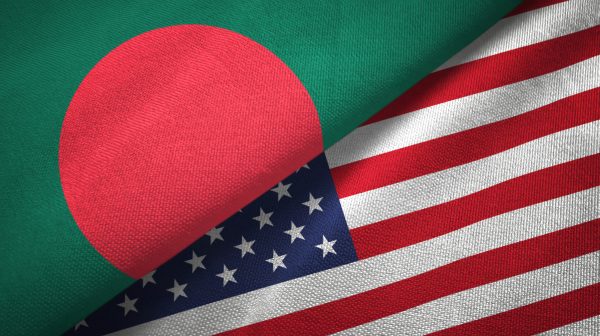By Mahlon Meyer
NORTHWEST ASIAN WEEKLY
Gordon Shoji, a few days before his 80th birthday (Photo by Mahlon Meyer)
Gordon Shoji had once been known up and down Alaska, and as far inland as Las Vegas, as a one-handed pool shark and a gambler. But a few days before his 80th birthday, his luck had run out.
He had recently lost his house, where he had stored a lifetime of objects from his travels—kendo sticks, a manual typewriter, and various bric-a-brac that were so thick it was hard to open the door.
He sat morosely in a chair in a local tea house recently. He barely had the energy to get up, it seemed. His cheeks were shrunken. His hair was disheveled. His coat was old and spread open around him.
With a coffee sloshing in his hand, and sighs of regret, he told the story of his life, from his early days as a greenhorn, when he was cheated so badly he devoted himself to games of chance, to later years when he often had to defend himself against other players who didn’t like losing to an Asian man.
Childhood and early influences
Shoji was born in the Manzanar concentration camp, which he left at age 3. As a child, he saved up money from after-school work, paper routes, and gardening, along with any gifts he got from his family.
By the time he was 16, he had already bought a house.
“I put $1,000 down and then paid monthly,” he said.
A churchgoer, he gave up swearing around that time. But another influence had begun to work in him.
As an adolescent, he had spent time hanging around a pool hall in Chinatown run by a friend’s father.
“His name was Joe, I think it was called Joe’s,” he said, looking around as if to catch a glimpse of the past.
He didn’t play. But that exposure made him curious enough so that when he grew older, he started spending an increasing amount of time at Imperial Lanes, a bowling alley with pool tables that used to be on the corner of Rainier Avenue and 23rd Avenue.
“I thought I was a real hot shot gambler.”
He invented an outfit for himself, modeled after old-time Wild West gamblers—consisting of what he called “a stingy brown hat and a flashy vest.”
The set-up
One day, an Asian man who was known to be from Salt Lake City came into the bowling alley and let it slip that there was a poker game in a nearby floral shop.
Shoji immediately went.
But when he got there, he noticed something funny. The man from Salt Lake City was there, along with the dealer, who ran the shop, “and two cops.”
Besides that, there were two open chairs.
“When I walked in the room, the dealer looked at me, at my outfit, and said, ‘Oh, it’s Bat Masterson,’” referring to an early gambler.
The game commenced.
Shoji found himself winning—outrageously.
“It was the luckiest streak I’ve ever had in my whole life,” he said.
He was up $600 or $700 when his luck began to turn.
“They had this girl delivering drinks, but there was this door lying on the floor, and every time she came in, she’d have to step over it, and her skirt would go up her thigh, and they’d say, ‘Look at that! Will you look at that!’ And that was when they’d switch the deck.”
Soon, Shoji was losing. Eventually he was broke. They persuaded him to take some money on loan.
“I lost immediately,” he said.
A turning point
Now he was in debt to the card sharpers—although he still didn’t know he had been cheated.
“I went back to the bowling alley, and I found the desk manager, and I said, ‘Oh, man, I just had the worst bad luck,’ and I mentioned where I had been playing. And he just looked at me without saying anything. And a family friend was cleaning the bowling alley, and I went up to him and I said, ‘I just lost hundreds of dollars,’ and I told him about the card game. And he looked at me really skeptically and didn’t say anything and just shook his head. And I said, ‘No, no, it was an honest game.’”
A little while later, the man from Salt Lake City came into the bowling alley to collect the money.
When Shoji gave it to him, the card sharper looked at him for a while, then pulled out a deck of cards and showed the teenager how to deal seconds and crimping cards and other techniques.
“I should have known,” said Shoji, grunting. “But, what, I was only about 17?”
Something then changed in him.
“I got every book I could on cards, and I made a vanity mirror so I could watch myself deal from different directions. I spent a year on that,” he said.
By the end, he had also picked up dice, pitching quarters, and had started on pool.
Alaska
As he grew older, and more skillful, he was invited to Alaska to run a card game.
He worked on a processing ship processing crab but the real money for the owners was in gambling.
“There was nothing for the fishermen to do—no women, no drugs, just playing cards,” he said.
But the foreman picked on him, so he was off again.
He was in the airport, on his way back to Seattle, when he was spotted by another gambling establishment.
“I was just practicing dealing, pretending I was playing solitaire, when a guy, he must have caught sight of me across the room, stopped by on his way to go to the bathroom and said, ‘Hey, you’re pretty good.’ He could see the way I was moving my arms and hands, I guess,” he said, hunching his shoulders and spreading out his hands in an oval to illustrate.
But it wasn’t until two years later, when Shoji was back up in Alaska, that he ran into the same man.
“There was this one small town, it was the closest to Valdez, where they were building the pipeline, and they had a gambling house. In fact, that was the whole purpose of that town,” he said.
Shoji went in and was playing blackjack, and after a moment recognized the dealer as the man who had spoken to him in the airport two years earlier.
It was at that moment that Shoji was trying a trick move.
“The dealer reached for my hand and I pulled it away, then he said, ‘Why don’t you cash in, and I want to talk to you?’”
In the end, he hired Shoji to work for him.
But once again, someone had “issues” with Shoji—this time a sidekick to the owner, who was a less competent gambler and was jealous.
Turning to one-handed pool
At this point, Shoji decided to renege on cards and pursue pool.
He had mastered a one-hand pool game by way of giving himself an advantage over others who were superior at two-hand pool.
One-hand pool is something all world champions know how to play, said Shoji, but they don’t have time to develop it because they have to spend so much time on their regular game.
“There is a way to beat any game,” he said. “But there’s always going to be someone with whom I couldn’t compete.”
Shoji spent six to eight hours a day working on his one-handed pool game.
“Any big city you go into, there’s always someone playing one-handed pool,” he said.
But Shoji would taunt his opponents to get them riled. And to get them to face him one-handed.
“I’d say, ‘We’re not talking about seeing who’s the better player, but who’s the better man.’”
He traveled up and down Alaska and back to Seattle, playing pool. At times, he had to defend himself, both at pool and when he switched back to cards.
While card counting in Las Vegas, he was kicked out.
“They have scientists studying how to beat the odds,” he said.
“Just keep your hands in your pockets”
During a game of blackjack in Seattle, a dice player who joined the game became suspicious.
“I just wanted to keep the game alive,” said Shoji—so he could earn more in the long run.
At one point, he threw away a winning hand. The dice player turned the cards over and was flabbergasted.
He called Shoji to meet him in a back room.
“You’re the best I’ve ever seen, I don’t know when you’re doing something or not,” he said.
But the dice player was so agitated, Shoji said to him, “You better not even think about putting your hands in your pockets.”
Several times, people had pulled guns on him.
“But they had to know, if you pull a gun on me, you’re going to have to shoot me, otherwise anytime anyone had a beef with me, they’d have pulled a gun,” said Shoji.
Much of the time, it came down to the fact that he was a short Asian man “talking a lot of trash,” especially when he was playing pool.
“They didn’t know how to take it. The gamblers and professionals just saw it for what it was. But if it was a working stiff who wasn’t used to losing a lot of money, there’d be trouble.”
Shoji is seeking an artist to draw the pictures for a graphic novel based on a world history he has written and already laid out with dialogue and characters. Preferred is someone who can also help with web support. To learn more details, contact him at: gshoji1943@gmail.com.
Mahlon can be reached at info@nwasianweekly.com.





















Discussion about this post